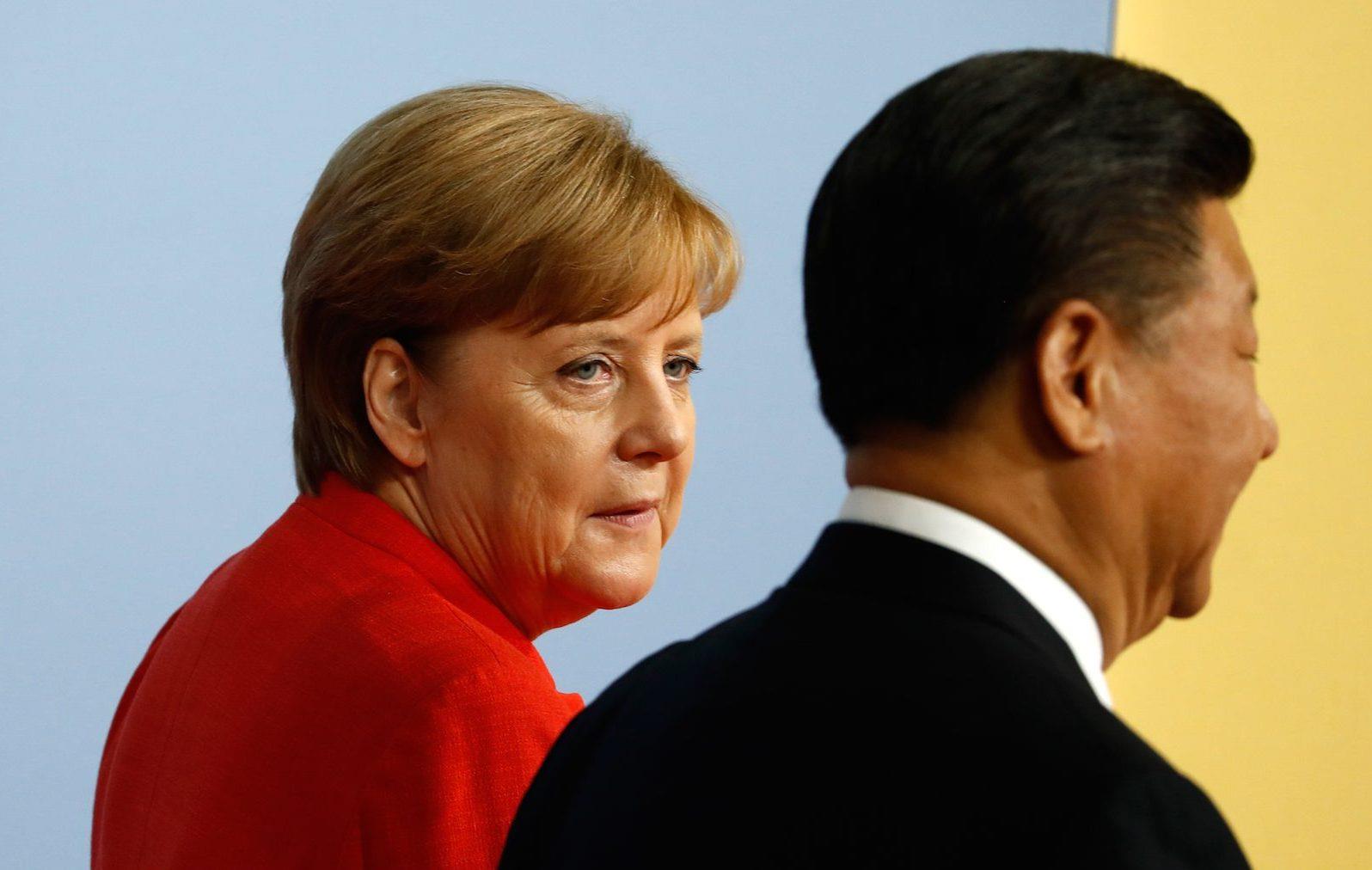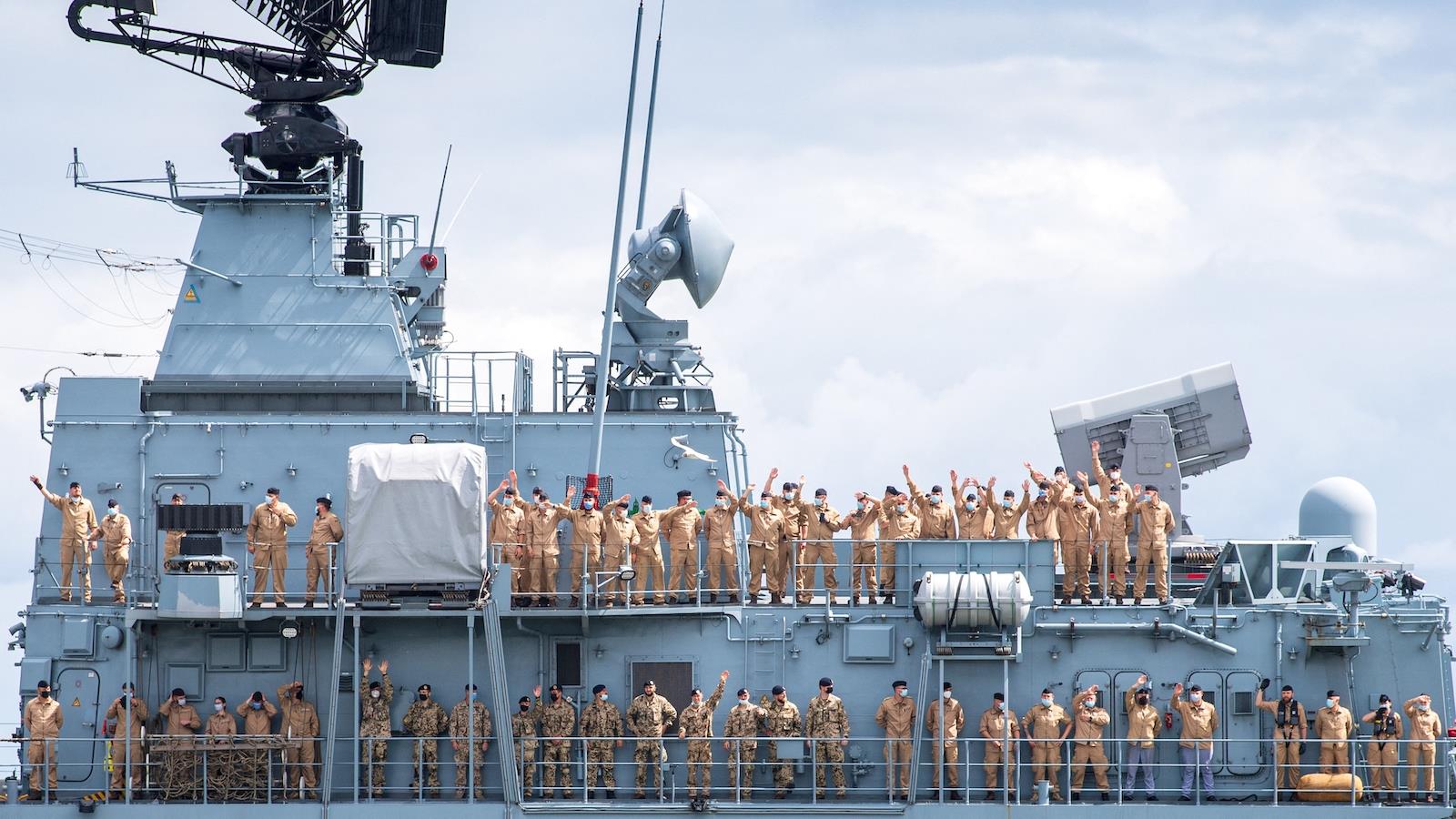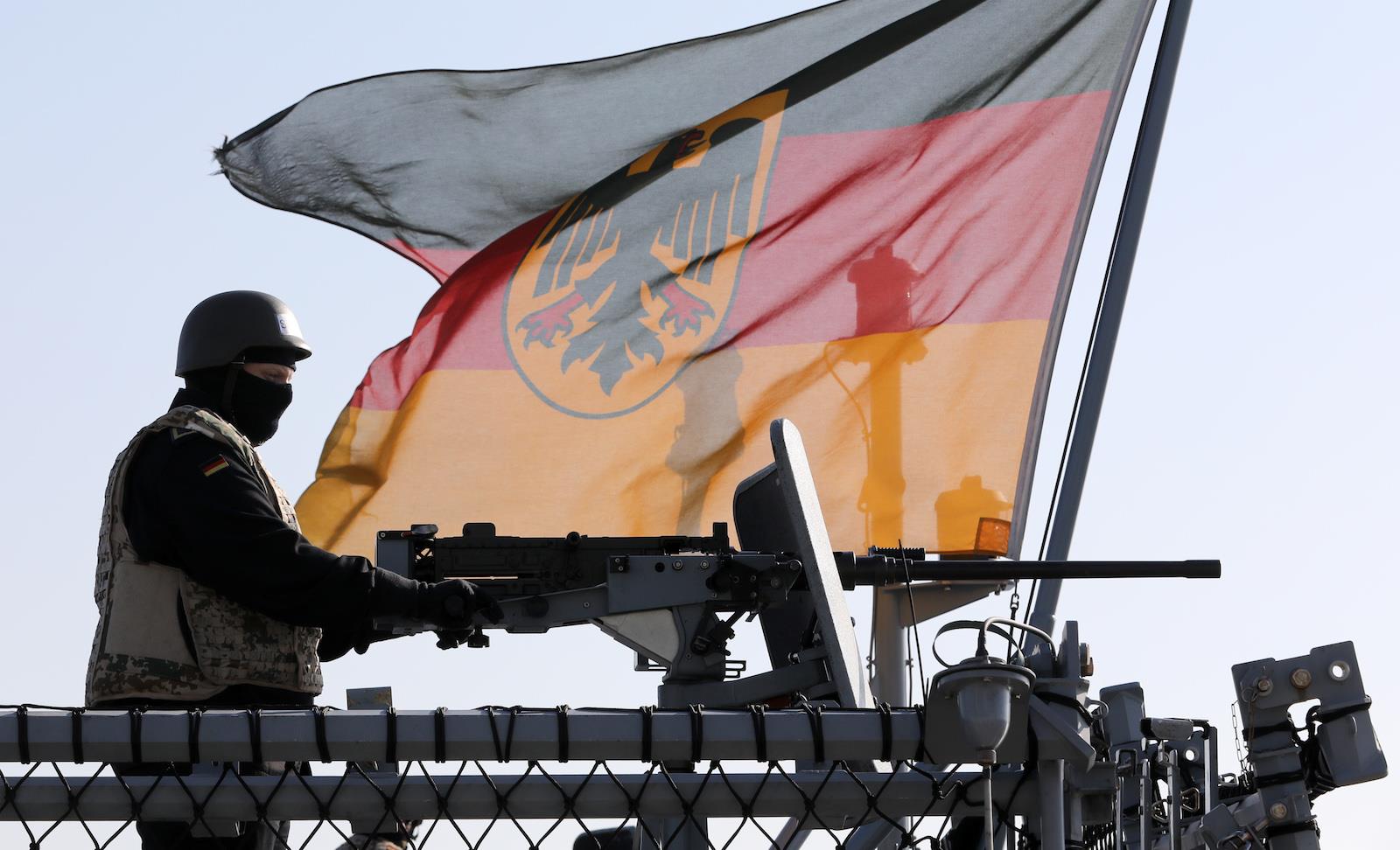(MENAFN- Asia Times) Germany has deployed a warship into Asian waters for the first time in nearly two decades, reflecting the European power's growing ambitions in shaping the 21st century global order. On Monday, the German Navy's frigate, Bayern, set sail from the port of Wilhelmshaven in the North Sea for a seven-month-long journey across a dozen ports in the Indo-Pacific.
According to German Defense Minister Annegret Kramp-Karrenbauer, the German warship is expected to make port calls from Djibouti and Karachi in the Arabian Sea to Diego Garcia and Perth in the Indian Ocean as well as Singapore in the Malacca Straits, then all the way to Guam and Tokyo in the Western Pacific.
Though seen as largely symbolic, the German deployment is meant to signal the European power's commitment to uphold freedom of navigation in international waters, protect“open societies” across the Indo-Pacific, and express solidarity with fellow democratic countries.
To China's chagrin, Bayern is also set to sail through the hotly disputed South China Sea with port calls in Vietnam, a newly-minted European Union defense partner , which happens to be China's fiercest rival in the contested maritime area.
The much-anticipated voyage is taking place on the final days of German Chancellor Angela Merkel's long tenure, reflecting a certain victory for more hawkish elements within the country's ruling party. No less than German Green Party's standard-bearer Annalena Baerbock, among top contenders to succeed Merkel, has vowed to take a tougher stance against China than the outgoing chancellor.
Bayern's deployment comes after similar moves by other major European powers this year, with a French nuclear submarine and, more recently, Britain's Carrier Strike Group already passing through Asia's contested waters. It also coincides with the conclusion of US Defense Secretary Lloyd Austin's maiden visit to Southeast Asia, where he touted the importance of an“integrated deterrence” against China.

German Chancellor Angela Merkel welcomes China's President Xi Jinping to the G20 summit in Hamburg, Germany, July 7, 2017. Photo: AFP / Odd Anderson
Perturbed by the growing naval presence of external powers, Beijing has snubbed Berlin's request for a port call in Shanghai as part of a broader effort“to maintain dialogue” with the Asian superpower. Instead, the Chinese Foreign Ministry warned the German frigate to“refrain from doing things that harm regional peace and stability” and“earnestly abide by international law.”
Up until recently, Germany was a relatively marginal player in Indo-Pacific affairs. Unlike Britain and France, it holds no territories in the area, nor does it have advanced aircraft carriers and well-established“blue water” naval capabilities. Nor is Germany a permanent member of the United Nations Security Council.
Boasting the world's third-largest military up until the 1980s, post-Cold War Germany oversaw a dramatic reduction in its military strength and deployments in recent decades. If anything, Berlin, now overseeing a unified Germany, emphasized domestic political consolidation, growing leadership with the European Union, and pragmatic “change through trade” (“Wandel durch Handel”) policy vis-à-vis authoritarian powers, most especially Russia.
The same pragmatism also governed Berlin's approach to a booming China, which absorbed a bulk of Germany's industrial exports and overseas manufacturing investments . But with Germany, now the de facto leader of the EU, aiming to facilitate the creation of“Ordnung” (orderliness) in major global theaters as a Gestaltungsmächte (shaping power), growing frictions with an increasingly assertive China became almost inevitable.
During her high-profile visit to China in 2015, Merkel warned her hosts against“serious conflict” amid the“territorial dispute in the South China Sea” To Beijing's dismay, the German leader also emphasized her support for international arbitration as“an option for a solution” for resolving the disputes.
The following year, Germany supported an arbitral tribunal at The Hague, which openly rejected China's expansive claims in the South China Sea as incompatible with prevailing international law in ruling in the favor of the Philippines.
Over the succeeding years, under Merkel's foreign minister Heiko Maas, Germany would also be at the forefront of global efforts to shed light on China's atrocities against minority groups, most especially in Muslim-majority Xinjiang. The European power has also been openly critical of Beijing's crackdown on the pro-democracy movement in Hong Kong.
In a potential game-changer, Berlin unveiled a new 40-page policy guideline last year, announcing its plans to join the ongoing scramble in the Indo-Pacific with an eye on China. Berlin made it clear that it's seeking to “promote a European Indo-Pacific strategy” and provide“active contribution to shaping the international order in the Indo-Pacific.”

The crew waves from aboard the frigate“Bayern”, which is setting off on a voyage lasting several months in the Indian and Pacific Oceans. Photo: AFP via DPA / Sina Schuldt
Foreign Minister Maas has emphasized Germany's commitment to help“shape…the international rules-based order of tomorrow” and espouse“international cooperation” rather than“the law of the strong.” In an unprecedented move, Germany joined fellow European powers Britain and France in a strongly-worded joint note verbale to the United Nations (UN) concerning the South China Sea disputes.
The three European nations emphasized the importance of preserving the“the integrity” of international law as well as“underline[d] the importance of unhampered exercise of the freedom of the high seas, in particular the freedom of navigation and overflight, and of the right of innocent passage” across the disputed South China Sea.
They also reiterated the 2016 arbitral tribunal award , which rejected Beijing's“historic rights” claims and coercive actions in adjacent waters as“not comply[ing] with international law.”
Germany's concomitant plans to deploy a warship to the Indo-Pacific, however, were disrupted by the Covid-19 pandemic. Bayern's deployment this week reflected Berlin's desire to act on its earlier pledge to play a more proactive role in the region, including assistance in enforcement of UN sanctions against North Korea as well as expanded show-of-force and joint naval operations with allies in critical sea lines of communications.
Earlier this year, Germany also concluded its first -ever“two plus two” meeting with foreign and defense ministers of Japan, underscoring the rapid expansion in spoke-to-spoke cooperation among top US allies in recent years.
Similar to France and Britain, Germany is also expected to double down on defense and strategic cooperation with democratic powers such as Australia, India, Singapore, Vietnam and South Korea.
Down the road, the US, along with other major regional rivals of China, hopes that Germany will eventually become more comfortable with regularly contributing to an alliance-based,“integrated deterrence” initiative against Beijing's perceived expansionism.
However, Germany's newfound sense of purpose, and its more overt strategic alignment with the US and allies on global issues, have not gone down well in Beijing.
“The German side has made requests to the Chinese side to arrange for its warship to visit Shanghai through multiple channels,” said a foreign ministry spokesperson in response to Bayern's deployment this week.

A German marine stands on board the corvette“Magdeburg” during the naval autumn maneuver“Northern Coasts” on September 11, 2019. Photo: AFP via DPA/Bernd W Stneck
“But regarding this warship operation, the information released by the German side before and after is too confusing. China will make a decision after the German side has fully clarified the relevant intentions,” warned the Chinese diplomat.
Two years ago, China went so far as to disinvite France from its 70th anniversary of the People's Liberation Army (PLA) Navy celebrations after French frigate Vendemiaire (F734) conducted freedom of navigation operations across the Taiwan Straits.
China has similarly threatened Britain against deployment in the region, but both European powers have continued to step up their naval deployments in the contested area.
It's not clear if Germany will face similar threats, particularly considering the scale of its investment in China, but Beijing is likely hoping that the more commercially oriented and pragmatic voices in Berlin would eventually prevail.
For now, though, it seems Germany's China hawks are gaining the upper hand amid a major shift in Western attitudes towards Beijing.
Both Merkel and her Social Democratic coalition partners initially opposed the naval deployment plan to the Indo-Pacific, especially across China's adjacent waters, as overly provocative. They worried about the consequences for large-scale bilateral trade and investment ties with the Asian superpower.
“That Germany [would] send this frigate under Merkel's watch is a small miracle and a big achievement for Defense Minister Kramp-Karrenbauer, who very much pushed for this,” Thorsten Benner, founder of the Global Public Policy Institute think tank, told the South China Morning Post.
MENAFN04082021000159011032ID1102566537